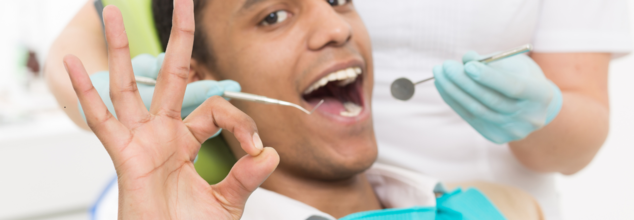
Credit-Canva
Are Oral Hygiene And Heart Health Connected? This Unexpected Habit Can Reduce Risk Of Stroke
Oral hygiene plays a big role in your health. It is one of the first things we are taught at school to keep our teeth clean as it is the gateway for all the nutrients that enter your body. It is also a very big reason why some of us fall sick. Not keeping your mouth clean can lead to your teeth suffering as well as unwanted bacteria to enter your body. From a very young age we are taught to brush twice, use mouthwash and floss to make sure there are no leftover food particles in our teeth as they can rot and cause harm to our teeth and be a home for festering bacterium. But what many people did not know was the effect it could have on your heart!
A new, early study suggests that flossing, even just once a week, might help lower your risk of having a stroke. This study will be presented at the American Stroke Association's International Stroke Conference 2025 in early February, but it is yet to be published in a peer-reviewed journal. A stroke is a serious medical problem that happens when the blood supply to your brain is cut off. This new research hints that something as simple as flossing regularly could help prevent these scary events. So, taking care of your teeth and gums isn't just about preventing cavities; it could also be good for your heart and brain health.
How Flossing Might Help Prevent Strokes
Scientists wanted to see if there's a connection between how well people take care of their teeth and gums (flossing, brushing, and going to the dentist) and their chances of having a stroke. They were curious because gum disease and other mouth infections are pretty common. They looked at information from a big study about heart disease. This study included over 6,000 people. The researchers looked at their dental habits, their health history, and other things about their lives.
Over a long period, some of these people had strokes. The researchers found that people who flossed regularly seemed to have a lower risk of certain kinds of strokes and a heart rhythm problem called AFib. And it seemed like the more often people flossed, the lower their risk was. Experts think flossing helps because it gets rid of tiny bits of food and bacteria that get stuck between your teeth. These bacteria can cause inflammation, which can lead to blood clots. And blood clots can cause strokes and heart attacks.
The study showed that people who flossed had a lower risk of a few different things. They had a lower risk of AFib which is a heart rhythm problem, a lower risk of ischemic stroke which is a kind of stroke caused by a blood clot, and a lower risk of cardioembolic stroke, where the clot comes from the heart. These good effects were seen even when the researchers considered other things like how often people brushed their teeth and if they went to the dentist. Even flossing just once a week seemed to help a little, but people who flossed more often seemed to have the best protection.
How To Floss Right
If you want to get better at flossing, there are different kinds of floss you can try. There's the regular kind you use with your fingers, floss picks that have floss on a little stick, and even water flossers that use water to clean between your teeth. A lot of dentists recommend using regular floss along with a water flosser for the cleanest teeth. It's a good idea to floss before you brush.
When you brush, do it at least twice a day for about two minutes each time. Make sure you clean all the sides of your teeth, especially where your teeth meet your gums. Use a soft toothbrush so you don't hurt your gums. Besides brushing and flossing, what you eat is also important. Try to stay away from sugary snacks and drinks because they feed the bad bacteria in your mouth. Instead, eat healthy foods like fruits and vegetables. And don't forget to go to the dentist for regular checkups and cleanings. Your dentist can catch any problems early before they get worse. Taking good care of your teeth and gums means brushing, flossing, eating healthy foods, and seeing your dentist regularly.
© 2024 Bennett, Coleman & Company Limited

